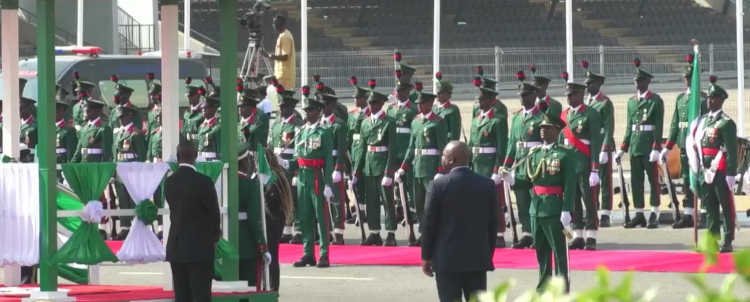On the occasion of Nigeria’s Armed Forces Remembrance Day, which was observed on 15 January, the memory of fallen soldiers must be honoured by improving the welfare of officers still in service.
Development Diaries reports that the day is set aside to honour soldiers who died while serving and also those who are currently serving.
Welfare issues in the Nigerian military have been a subject of concern, as they affect the morale, effectiveness, and overall well-being of the nation’s military personnel.
The Chief of Defence Staff, General Christopher Musa, in his goodwill message, charged personnel to remain resolute in defeating all forms of security threats to ensure enduring peace and security in every area of the country, as he will continue to prioritise their welfare while steering the affairs of the armed forces.
The question is, how well will the promise of prioritising welfare hold water?
There have been several reports before now revealing the poor welfare of soldiers at the war front, but despite such revelations, it appears political will is lacking in carrying out the necessary actions to improve soldiers’ welfare.
An exclusive report by SaharaReporters in September 2023 revealed how some Nigerian army personnel deployed to fight terrorists in the country’s northeast were not being properly fed by their superiors, despite the increment of money earmarked for their feeding allowance.
Several challenges continue to persist, contributing to the complex landscape of welfare issues in the Nigerian army.
Military barracks often face issues such as overcrowding, inadequate sanitation facilities, and substandard living conditions. The lack of proper housing affects the overall quality of life for soldiers and their families.
Despite the demanding nature of their job, some soldiers in the Nigerian army may feel that their compensation is insufficient. Low salaries, coupled with delays in payment and inadequate allowances, can demoralise military personnel and their commitment to duty.
The nature of military service, especially in conflict zones, exposes soldiers to traumatic experiences that may lead to mental health issues. Unfortunately, the Nigerian army has faced challenges in addressing the mental health needs of its personnel, including insufficient mental health facilities and a stigma associated with seeking psychological support.
The nation’s military is also faced with challenges such as outdated equipment, inadequate training facilities, and insufficient funds for capacity building that can hinder operational capabilities.
Another problem is corruption within the military hierarchy, which worsens welfare issues. Mismanagement of funds earmarked for welfare programmes and resources allocated for the well-being of soldiers can lead to disparities and exacerbate the challenges faced by military personnel.
Additionally, issues related to retirement benefits, pensions, and post-service support can pose concerns for military personnel. Delays in the processing of retirement benefits can create financial hardships for retired soldiers.
It will take a concerted effort from the military and the government to address these welfare issues.
Development Diaries calls on the Chief of Defence Staff to prioritise the well-being of personnel, not only for the soldiers and their families but also for the overall operational efficiency and effectiveness of the military.
Photo source: Nigerian Army




